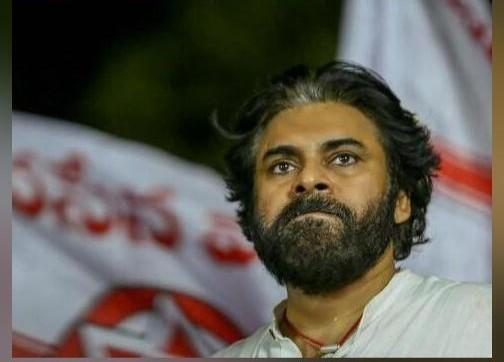
Like PM, Kalyan switches to English while speaking on J&K attack
In a rather unexpected move, Andhra Pradesh Deputy Chief Minister Pawan Kalyan surprised his audience by switching to English from Telugu mid-speech while discussing the recent terror attack in Jammu and Kashmir’s Pahalgam. The sudden change in language was seen as a gesture to convey the gravity of the situation and the country’s strong stance against terrorism. This move is reminiscent of Prime Minister Narendra Modi’s decision to switch to English from Hindi during his speech on the same topic, sending out a strong message of India’s determination to combat terrorism.
The Jammu and Kashmir terror attack, which took place on October 11, was a devastating incident that claimed the lives of several innocent civilians. In the aftermath of the attack, Pawan Kalyan took to the stage to express his condolences and condemn the heinous act. Initially, he began his speech in Telugu, speaking to the crowd in a language they were familiar with. However, as he delved deeper into the topic, he suddenly switched to English, saying, “The attack has been one of the darkest days in the entire country.”
This impromptu change in language was met with a mix of reactions from the audience. Some were taken aback by the sudden shift, while others appreciated the Deputy CM’s bold move. The decision to switch to English was likely a strategic one, as it allowed Kalyan to convey a sense of urgency and seriousness to the audience. By using a language that is widely understood and spoken globally, he was able to emphasize the gravity of the situation and the need for collective action against terrorism.
Prime Minister Narendra Modi, too, had made a similar move earlier. In his speech on the Pahalgam attack, Modi switched to English from Hindi, using the language to send a strong message to the world. The PM’s decision was seen as a bold move, as it signified India’s determination to take a stand against terrorism and its refusal to be intimidated by such acts.
The decision to switch to English is not just a matter of linguistic choice; it also carries significant symbolic weight. By using a language that is widely understood, leaders like Kalyan and Modi are able to transcend linguistic and cultural barriers, speaking directly to a global audience. This move is a testament to India’s growing influence on the world stage and its willingness to engage with international communities.
The Jammu and Kashmir terror attack has sent shockwaves across the country, leaving many to wonder about the future of peace and stability in the region. The attack has also raised questions about the effectiveness of the government’s anti-terrorism measures and the need for greater cooperation between different agencies.
In the face of such uncertainty, leaders like Pawan Kalyan and Narendra Modi are sending out a strong message of solidarity and determination. By switching to English during their speeches, they are conveying a sense of urgency and gravity, emphasizing the need for collective action against terrorism. This move is not just a linguistic choice; it is a symbol of India’s commitment to fighting terrorism and protecting its citizens.
As the country grapples with the aftermath of the Pahalgam attack, it is clear that the fight against terrorism is far from over. However, with leaders like Kalyan and Modi sending out a strong message of determination and solidarity, there is hope that the country can come together to combat this menace and ensure a safer future for all its citizens.
Source:






